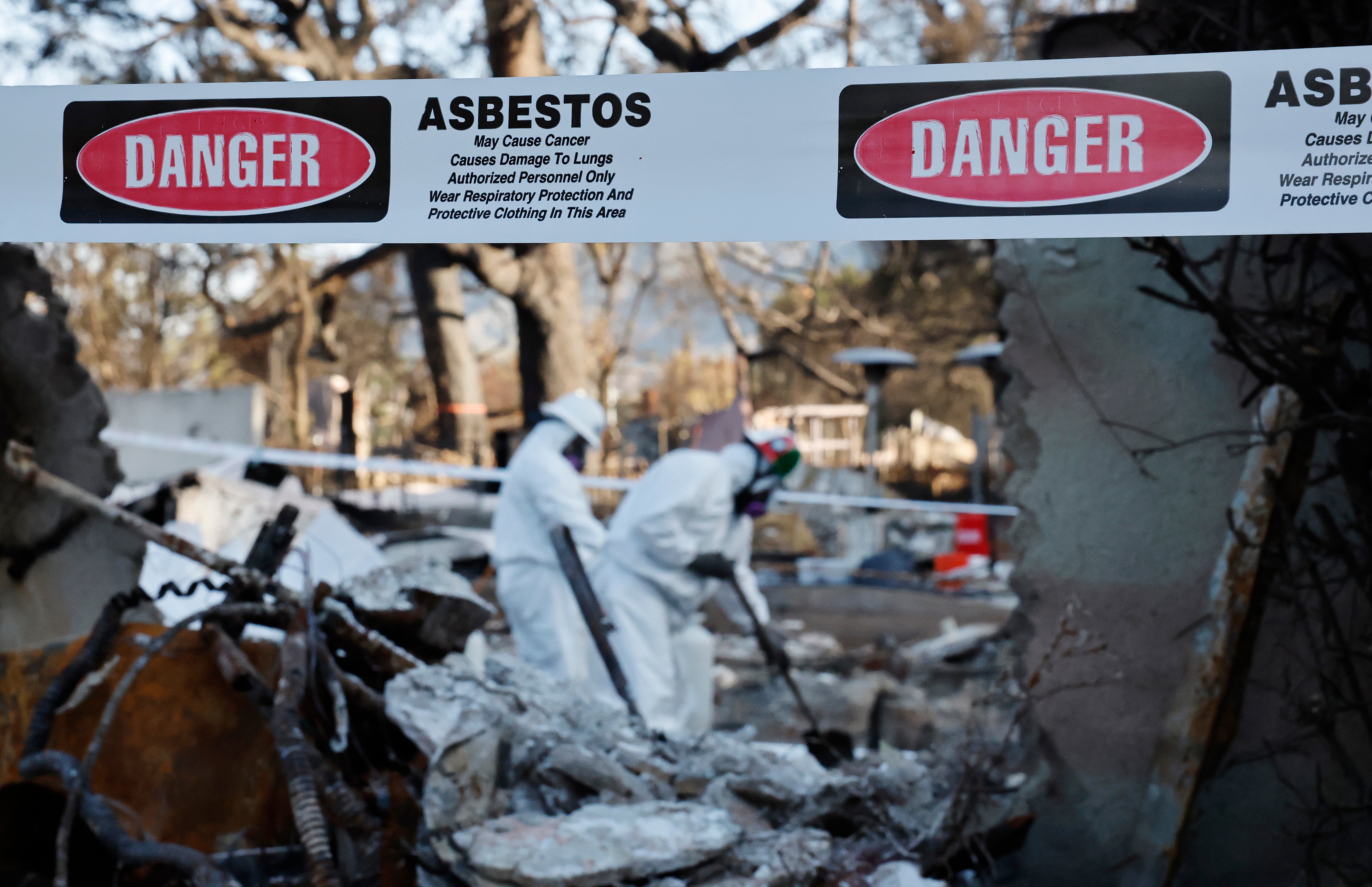The Environmental Protection Agency is reconsidering a ban on the last type of asbestos still used in the U.S. – a mineral that has been tied to cancer and heavily regulated for decades.
Now, the Trump administration is looking at reconsidering a Biden-era rule that eliminated the last kind of asbestos allowed in the U.S.
“EPA leadership has reviewed the Asbestos Rule and now intends to reconsider the Rule through notice-and-comment rule-making,” the EPA’s Office of Chemical Safety and Pollution Prevention Deputy Assistant Administrator Lynn Ann Dekleva said.
The EPA did not respond to The Independent’s request for comment on the matter by the time of publication. However, it told The New York Times that it does not comment on litigation.
This move is one of several actions recently taken by the administration that critics say could harm the health of Americans, including the recent rollback of power plant pollution standards. It follows recent actions by the Biden administration to finalize the agency’s ban on chrysotile asbestos, marking what they called a “major milestone for chemical safety” last year. It also would set back a decades-long effort to end the use of asbestos.
Asbestos has been linked to cancer and is responsible for thousands of deaths in each year. Its removal from older buildings is often a costly process that requires protective gear.

Asbestos is a mineral fiber that naturally occurs in rock and soil. It has often been used in construction materials and fire retardant. Chrysotile asbestos, which is the most common type of asbestos, is one of six types of asbestos. Chrysotile asbestos is the only form known to be imported, processed or distributed for use in the U.S. Most consumer products that historically contained chrysotile asbestos have been discontinued.
People are exposed when fibers are released into the air by the moving of material containing asbestos. During January’s deadly Southern California wildfires, firefighters and crews were put at risk to old asbestos.
Exposure to any asbestos can cause cancers, including lung cancer, ovarian cancer, laryngeal cancer and mesothelioma. The fibers can get in through the mouth or be inhaled stay in the lungs for years, causing inflammation that can result in cancer. Asbestos exposure has been tied to more than 40,000 deaths in the U.S. annually. Every 13 minutes, someone dies from asbestos disease, according to the Asbestos Disease Awareness Organization. It was first declared a carcinogen and regulated in the 1970s.
“The science is clear — asbestos is a known carcinogen that has severe impacts on public health,” former EPA Administrator Michael Regan said in March 2024.
But, the filing says the Trump administration’s Office of Chemical Safety and Pollution Prevention will consider removing former final rule’s bans on the importation and use of asbestos in the production of chlorine and the installation of new asbestos-containing sheet gaskets in petroleum, chemical, power production and nuclear facilities.

“Additionally, [the office] will consider all reasonably available information and assess whether, consistent with the best available science and its risk management authority in Section 2605(a), the prohibitions with respect to the Asbestos sheet gasket and Chlor-alkali conditions of use in the Asbestos Part 1 Rule went beyond what is necessary to eliminate the unreasonable risk and whether alternative measures — such as requiring permanent workplace protection measures — would eliminate the unreasonable risk,” the document said.
The Asbestos Disease Awareness Organization’s co-founder and president, Linda Reinstein, called the plan to weaken protections a “serious setback for public health.”
“EPA’s own science confirms that asbestos is deadly, even at low exposures. Each year, 40,000 Americans die from preventable asbestos-caused diseases. Workers and families cannot afford more exposure to the dangers of asbestos as a result of the EPA gutting protections it has already deemed necessary for public health,” she said in a statement.
The American Chemistry Council told the Times that it supported reconsideration of the rule.
With reporting from The Associated Press


